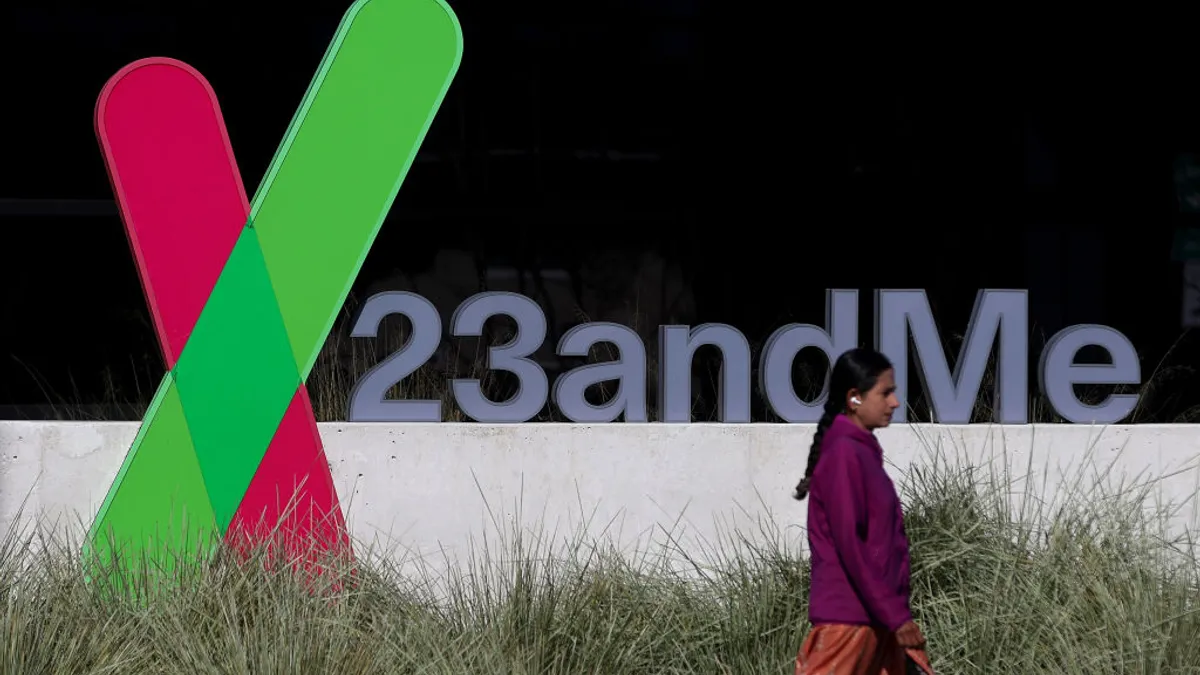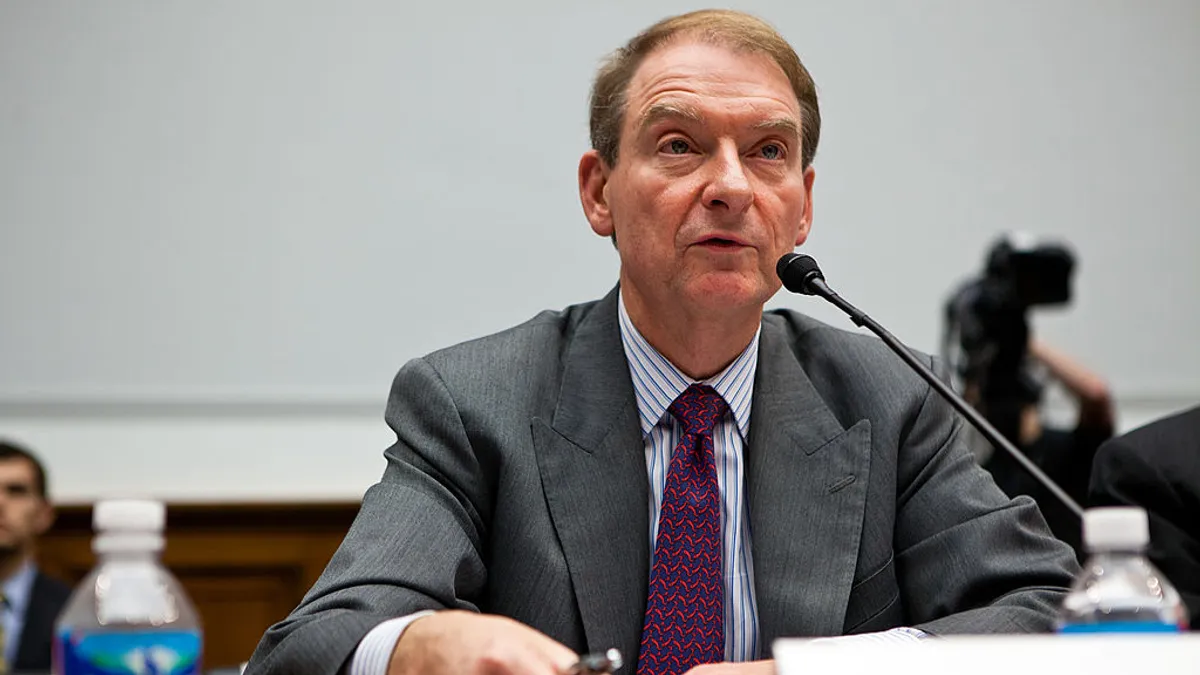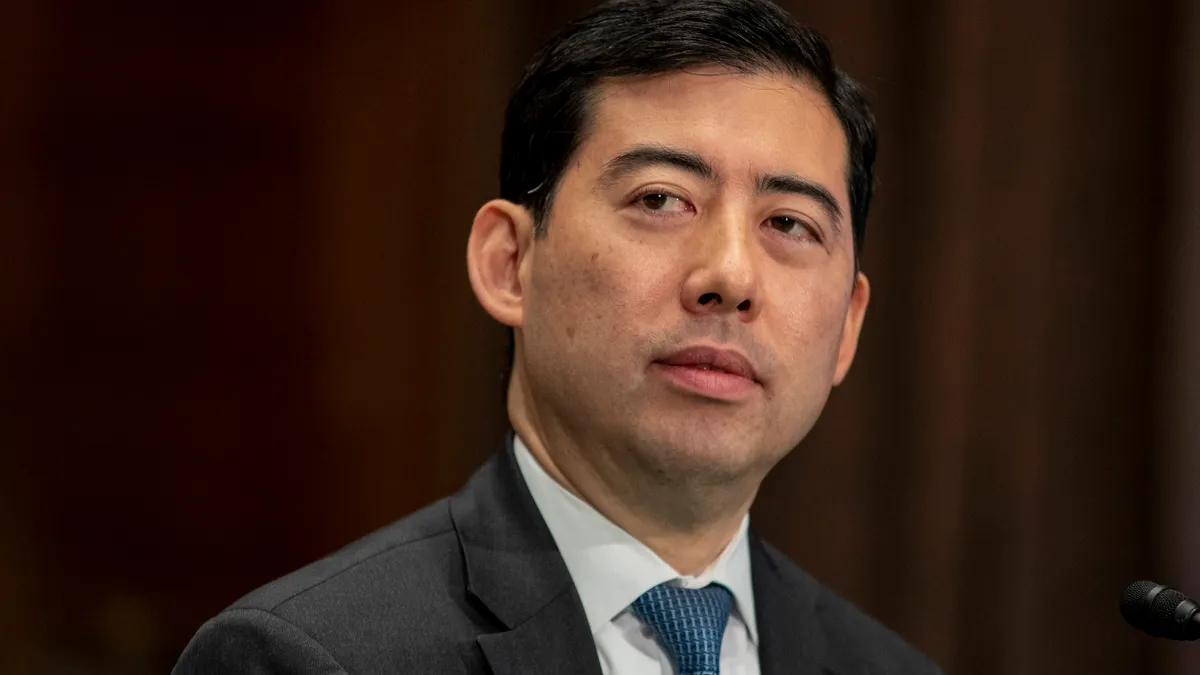Former Xerox CFO Barry Romeril this week failed to shoot down the Securities and Exchange Commission’s longstanding practice of restricting what executives can say once they agree to settle.
In a decision, a three-judge panel of the U.S. Court of Appeals for the Second Circuit affirmed a lower court ruling that the SEC was within its rights when, in a 2003 settlement of alleged accounting fraud, it prohibited Romeril from coming back later to challenge the allegations in his case.
“To the extent Romeril had the right to publicly deny the SEC's allegations against him, he waived that right by agreeing to the no-deny provision as part of [the] consent decree,” the judges ruled on Monday.
Romeril sued the agency in 2019, calling the restrictions the SEC imposed on him — and routinely imposes on executives who agree to settle — an infringement of free speech and due process rights.
“SEC gag orders are unconstitutional prior restraints that violate Americans’ First Amendment rights and ... due process rights,” said Peggy Little, senior litigation counsel at The New Civil Liberties Alliance, which filed the suit on Romeril’s behalf.
In their decision, the judges said that, if defendants like Romeril want to retain their right to challenge their case, they can forgo settlement and opt to fight their charges in court.
“Romeril elected not to litigate,” the judges said.
Technical ruling
Little said the court’s decision rested on procedural issues and side-stepped the question of constitutionality. The lawsuit charged the SEC with using its rule-writing authority to create an improper permanent ban on those who settle with the agency from ever revisiting the SEC’s findings, regardless of the accuracy of the allegations or of the defendants’ remarks.
“SEC’s gag rule was unlawful and unconstitutional from the day the agency deceitfully slipped it into the Federal Register as a ‘housekeeping rule’ without notice and comment,” said Little. “The passage of time only multiplies the constitutional injury suffered by defendants, who cannot settle with SEC unless they agree to a lifetime gag that a court has no power to enter. Other federal agencies do not require gags, nor do courts enter them in cases brought by other agencies.”
In a typical SEC settlement agreement, defendants, without admitting or denying guilt, have their charges dropped in exchange for paying penalties and taking disciplinary actions.
The gag order flows from the defendant’s agreement not to admit or deny guilt; by agreeing to that, they permanently waive their right to challenge the allegations against them.
“It is important to avoid creating, or permitting to be created, an impression that a decree is being entered or a sanction imposed, when the conduct alleged did not, in fact, occur,” the SEC said in its rationale for the rule, which took effect in 1972. “The Commission believes that a refusal to admit the allegations is equivalent to a denial, unless the defendant or respondent states that he neither admits nor denies the allegations.”
Accounting maneuvers
Romeril was CFO of Xerox from 1993 to 2001, when he was one of six executives to resign in the face of fraud allegations. The SEC charged the company with using, in violation of generally accepted accounting principles (GAAP), undisclosed one-off accounting maneuvers in the late 1990s to align its revenue with analysts’ expectations.
As CFO, Romeril made more than $5 million during the period, much of it tied to performance, while filing misleading reports with the SEC, according to the agency.
“Xerox found it increasingly difficult to meet quarterly analyst estimates based on revenues,” the SEC said, so ”reliance on accounting devices became more pronounced, accounting for a growing percentage of reported earnings.”
Among other things, the company pulled forward billions of dollars in lease, equipment and service revenue without disclosing that it had changed the way it was recognizing revenue.
“Romeril was responsible for the filing with the Commission of 12 quarterly reports on Forms 10-Q and four annual reports on Forms 10-K for the period 1997-2000, each of which contained false and misleading financial information or omitted material information,” the SEC said.
In the settlement, Romeril was permanently banned from acting as an officer or director of a public company and agreed to pay $1 million in civil penalties and $4.3 million in disgorgement and prejudgment interest.
In a statement, the New Civil Liberties Alliance said it would continue to challenge the SEC’s restriction on future challenges.
“NCLA is committed to end this anomalous practice that dangerously insulates SEC from criticism by those in the best position to point out flaws in the agency’s enforcement practices,” it said.
Gregory Law, a former CFO of Osiris Therapeutics who was accused in 2015 of accounting fraud by the SEC but won a battle to clear his name, says accountability for the agency is past due. Even though he prevailed against the allegations, the agency’s enforcement power can ruin defendants financially and reputationally.
"It took 690 days ... for the SEC to admit it had mistakenly included me in its lawsuit," Law said last year. "My loss of earnings, spent savings, and impact on future earnings … have been significant. I cannot sue or otherwise recover any of this from the SEC or the SEC employees that knew or should have known that I shouldn’t have been included in the lawsuit. Sadly, the SEC doesn’t hold itself to the same exacting standards it holds company executives to."




















